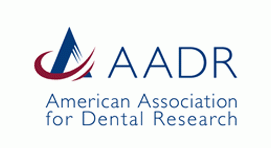Introduction
NIDCR is one of 27 separate Institutes and Centers located at the National Institutes of Health (NIH) on a suburban campus-like environment approximately 10 miles from the center of Washington, D.C. NIH has the largest number of biomedical researchers in one location in the United States. Students in high school, college, graduate school, or the professional schools (dental, medical, veterinary) can spend a summer or work part-time through the academic year at the National Institute of Dental and Craniofacial Research (NIDCR) in Bethesda, Maryland.
NIDCR has seven intramural research Branches focusing on bone, developmental biology, gene therapy, cancer, epidemiology, immunology, and pain. There is also as active clinical research program with patient care. The NIDCR Training Programs are designed, to expose talented individuals at an early stage in their career to the latest advances in basic, clinical, and epidemiological research. Cellular, biochemical, and molecular approaches are employed using the latest techniques and equipment. Projects are designed to encompass basic, translational, and clinical aspects where appropriate. NIDCR researchers use state-of-the-art technologies to study the fundamental mechanisms of development and disease in order to improve prevention, diagnosis, and therapy of acquired and genetic diseases and disorders.
Program Financial Support
Salaries or stipends are based on the student’s educational level and the mechanism of support, and are subject to yearly adjustments. Students with their own funding and students who are willing to volunteer or participate in a co-op program with their school are welcome to apply.
Eligibility
Students who are U.S. citizens or permanent residents, and at least half-time and in good standing at their institutions are eligible. Eligibility varies according to program requirements. For the summer program, students must work a minimum of 8 weeks. For the part time positions during the academic year, students must be available to work a minimum of 12 hours per week. College graduates must be within 1 year of their graduation and willing to work fulltime for a minimum of 1 year and no more than 2 years. Postdoctoral fellowships range from 1 to 3 years.
Contact Person: Dr. Deborah Philp, Director, Office of Education
National Institute of Dental and Craniofacial Research
National Institutes of Health Building 30, Room 131, MSC-4310
Bethesda, Maryland 20892-4310
Phone: (301) 594-6578
Fax: (301) 480-5353
Email: [email protected]
Opportunities
Medical Research Scholars Program
The NIH Medical Research Scholars Program (MSRP) is a comprehensive, year-long research enrichment program designed to attract the most creative, research-oriented medical, dental, and veterinary students to the intramural campus of the NIH in Bethesda, Maryland. The MRSP builds upon the long history and core mission of the NIH intramural program to prepare future medical researchers and clinician-scientists for leadership roles in biomedical research. It blends elements of the previous Howard Hughes Medical Institute (HHMI)-NIH Research Scholars Program and the NIH Clinical Research Training Program (CRTP).
NIDCR Summer Dental Student Award
Designed to expose dental students to the latest advances in oral health research and administration. The program is a minimum of eight weeks during the summer on the campus of the National Institutes of Health in Bethesda, Maryland. NIDCR provides a stipend and the nominating dental school provides support for air or ground transportation. Applicants must be enrolled in an accredited U.S. dental school. U.S. citizenship or permanent residence is required.
Howard Hughes Medical Institutes Research Scholars Program
Participants of the Howard Hughes Medical Institutes-National Institutes of Health (NIH) joint program work in NIH laboratories in Bethesda, Maryland as part of a research team and are given the opportunity to attend conferences and meetings. Most students participate in the year-long program after their second or third year of dental or medical school. Candidates must be in good standing at a U.S. dental or medical school and must receive permission from the school to participate in the program. An annual salary is provided. Joint PhD candidates are not eligible.
Postdoctoral Fellowships
Various positions are available at the NIDCR/NIH in Bethesda, Maryland to train professionals with a PhD and/or a DDS, DMD, MD, or DVM. Applicants must be within five years of their graduation date and have less than five years previous postdoctoral experience to apply. Stipend amounts depend on the level of experience and the type of positions available. Perspective applicants can view current NIH postdoctoral openings and contact individual NIDCR laboratories of interest to identify future research positions. Applications are accepted on a rolling basis. US citizens and non-US citizens may apply.
Meant to attract talented health professionals to careers in clinical, health disparity, pediatric, or contraceptive and infertility research. In exchange for a two-year commitment to your research career, the National Institutes of Health will repay up to $35,000 per year of qualified educational debt, pay an additional 39% of the repayments to cover Federal taxes, and may reimburse any state taxes that result from these benefits. Applicants must (1) have a doctoral degree from an accredited institution; (2) be a government employee (3) have qualifying student loan debt equal to at least 20% of annual salary; (4) be U.S. citizens, non-citizen nationals, or permanent residents.
For further opportunities and the most up to date list, please refer to www.nidcr.nih.gov
Dual degree programs:
In addition to both the intramural and extramural training opportunities at the NIH/NIDCR many schools offer formal research training in conjunction with their DDS-DMD program.
The following table is a partial list based on a survey of dual-degree programs in 2006. Please contact the school of interest directly about their current opportunities for formal graduate training concomitantly with the DDS/DMD.
Table 3: Dental Schools Advertising DDS-DMD/PhD programs
|
School Name |
Activity |
Support |
|
Baylor College of Dentistry |
Post-graduate |
|
|
Columbia University School of Dental and Oral Surgery |
Post-graduate |
|
|
Loma Linda University School of Dentistry |
Advertised* |
T32, R25 |
|
Marquette University School of Dentistry/University of Rochester |
2 students |
|
|
Medical College of Georgia School of Dentistry |
Advertised* |
|
